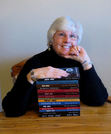Melissa Bowersock's Blog, page 24
May 7, 2013
Writing: Organized or Organic?
Writing is a very subjective and personal pursuit. I would guess that there are about 958 mega-bazillion writers in the world and no two writers go about the process in the exact same way. In some of my writers’ forums and in many of the blogs I follow, I hear about writers creating detailed outlines and storyboards, using index cards or software to chart the arc of their story and keep track of the main characters and major plot points. This all sounds very foreign to me.
I've always been an organic writer. When I sit down to write a book, I may know four or five major plot points. Or not. I may know the names of the major characters and how the conflict will affect them. Or not. I may know what happens in the book, and how it ends. Or not.
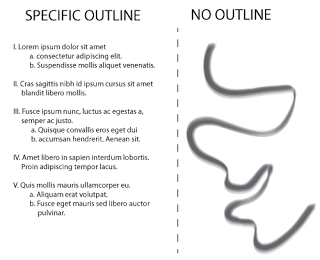
My latest book (Stone’s Ghost, not yet published) is a good case in point. I’ve blogged before about how I originally set out to write a light, fluffy ghost story that suddenly turned dark and moody. The initial inspiration for this came while I was watching an episode of Arizona Highways and they did a story on the London Bridge in Lake Havasu City and the ghosts that supposedly haunt it. I thought at the time that it might be fun to write about a ghost who died in 18th century London but finds herself in the desert southwest of the “colonies.” My initial idea was a fish-out-of-water story where the ghost is disoriented by the drastic change in her surroundings and must adapt, helped by a living human who connects with her and guides her through the transition. Imagine my surprise when the main living character, Matthew Stone, became the focal point, and his story was anything but light and fluffy.

He developed into a very moody guy, and with good reason. His father was an alcoholic and disappeared into a bottle regularly, leaving the young man disillusioned and disappointed. Although Matt has become a successful businessman, has plenty of money and a beautiful girlfriend, maintains a high standard of integrity and believes himself a model citizen, unexpected events bring out the fact that he is not quite as undamaged as he would like to believe.
What I love about this organic “process” is that it seems to come from some other place than my own brain. Don’t ask me where, but it’s not part of my conscious planning. It may arise from the subconscious, or it may just be serendipity. While writing an earlier book, Goddess Rising , I would often sit down and not have a clue what I was going to write, but the words would flow off the pen with surprising abundance. I remember at one point I introduced an idea that seemed like a small sidelight, an unimportant detail that arose naturally out of the situation at the time but seemed to have no great purpose in the story. It was only much later that the same idea returned and suddenly became pivotal, and I had to wonder: was there a part of me that knew I would need it later on? What made me include it in the first place, and what made me write my way into needing it for the story later? I will never know.
The same was true with Stone’s Ghost. What was very surprising was the fact that I didn't really know what the core idea of the story was until I was about 20 pages from the end. At that point it became clear to me, yet I still had no idea how that core idea was going to be realized. That happened about 10 pages later, buried in a conversation that I thought was fairly innocuous. And it wasn't until I got to the last page that I realized the story was not going to end the way I thought!
So much for planning.
Is it better to be organized, or let the story evolve organically? I can’t speak for anyone else, but obviously for me, organic works. And I don’t think I’d want it any other way.<a rel="author" href="https://plus.google.com/1143433945654... Bowersock</a> is an eclectic writer and hypnotherapist.
Published on May 07, 2013 07:22
May 1, 2013
Proof-Reading: Tips and Tricks
I’ve blogged before about typos, the bane of any writer. Proof-reading our own work is extremely difficult for writers. We know what the words are supposed to say, so very often our brains show us just that, not letting us see the misspellings, the incorrect words, the errors in punctuation. In the writers’ forums I frequent, there is often discussion of the ways to fool the brain into showing us what’s actually there. You wouldn’t think we’d have to go so far to outwit our own brains, but the fact of the matter is, we do.
Here are some of the tricks.
Change the font. If you’re using Times New Roman, switch to Arial; switch from a serif to a san-serif or vice-versa. Change the size of the font, or change the entire body of text to a different color. All of these things act to alert the brain that there’s something NEW here and to pay attention.

Read backward. When we read from front to back, our brains get involved in the narrative and stop seeing the errors. It can be very difficult to disengage from the story unless you read in a way that deliberately breaks up the narrative; reading from back to front does this. Read each sentence as a whole (how else are you going to check the flow of that sentence?), but read the last sentence first, then the next to last, etc. This forces your brain to consider just that sentence and you can zero in on the errors.
Read out loud. Reading out loud uses the brain in a different way and can reveal problems your eyes don’t see. Another trick is asking someone else to read it out loud to you. Either way, using a different mode of delivery engages the brain in a different way and makes it easier to find problems.

Enlist beta readers. All writers need beta readers, friends and family who will read our words with a red pen at the ready. Some invariably pooh-pooh their value, insisting they are not writers or editors or have no knowledge of story-telling. That’s okay. What we need are readers. We need to know what pops a reader out of the story, what distracts them from the flow of the book. I always tell my beta readers not to actively look for problems, but simply to report anything that interrupts their reading.
Last resort. One of my books is non-fiction and written in epistolary format with many letters and other sources within the narrative. I was already using different fonts, one for the narrative and one for the letters, and after the 10th go-round still finding errors, I realized I needed to take drastic measures. I hunkered down with the book and read … one … word … at … a … time. It took forever, but it allowed me to see the things my brain was still just cruising past when I read at a normal rate.
What other tricks can you think of?
Published on May 01, 2013 11:00
April 17, 2013
Audio Books - From Page to ... Ear?
Recently I embarked on a new challenge, converting one of my books into an audio book. I don’t now even recall how I happened to stumble upon the idea; maybe one of the blogs I follow or one of the updates from my many writers’ forums mentioned ACX.com and my investigation took off from there. ACX is an Amazon company much like Create Space in that it provides an easy, affordable way to produce books, in this case audio books rather than physical books. ACX acts rather like a passive agent, creating a neutral middle ground where authors and producers can meet and explore working together. It’s a fairly simple and straightforward process.

I registered information about my book Marcia Gates: Angel of Bataan some months ago. I uploaded the first chapter, the blurb, the cover image, my desire for a female voice and my choices for a working arrangement. There are two ways to pay for a book producer/narrator: one is to pay them up front for their time, estimated to be roughly between $100-200 an hour; the second way is to pay no up-front fees and split the royalties with them 50/50. I chose the latter for several reasons. First, I was not comfortable parting with a large up-front outlay when I was trialing this whole idea for the first time, and it made sense to me that if the producer were to be heavily invested in the success of the book (i.e. royalties), s/he would do his/her utmost to promote it just as I would.
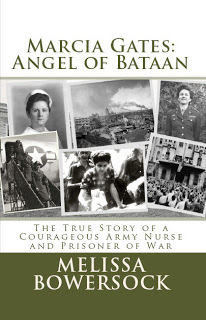
So I put my book up there, went about my other writerly duties and promptly forgot about it.
One of the drawbacks I’ve found to having ten or twenty or fifty irons in the fire at one time is the tendency to lose track of some of them. When I got an e-mail that I had an audition waiting to be reviewed, I was pleasantly surprised. Oh, yeah—audio book!
I logged into ACX and found my dashboard, figured out how to play the audition and listened to the first chapter of my book come alive. It was pretty fascinating; the words, of course, were patently familiar to me, but the tone of voice, the inflection, the emphasis were all new. It was interesting to hear a voice so different than my own read my words in ways that varied slightly from my intended emphasis. That variation was a little jarring at first, but not entirely at odds. I liked her expression, and if it seemed like there was room for improvement, the good news was that I thought her voice was closer to a fit than a definite misfit.
Through ACX, I sent her a message saying I had listened to the audition and I thought we had something going here. Turns out she thought so, too.
This particular book is the biography of my aunt, an army nurse and prisoner-of-war of the Japanese in the Philippines during World War II, and so was a labor of love for me. Imagine my surprise when my producer replied back that she chose my book as a way to honor her father, who had also served in the Philippines! Right away we connected on a very emotional level, and we both felt we could put together a fitting tribute to our families in this joined effort.
Offers sent and accepted, the next milestone was for her to produce a 15-minute sample for my approval. I quickly found out that she and her husband are voice-over actors and have their own sound studio, so producing the sample was all within her means. The fact that her husband was a professional voice, as well, sparked an idea. My book is written in an epistolary style, using copious amounts of letters, newspaper articles and telegrams to tell the story as it unfolded in real time. As the book is told from the point of view of my aunt and her mother, I wanted a primary female voice, yet some of the letters are from men, and a male voice would make a nice contrast in those areas. I asked her if her husband would be up for playing a few “bit parts” in my book. Not only did they readily agree, they even expanded his role and he narrated parts of my father’s autobiography that I had incorporated into my book, as well.
Boy, oh, boy, I thought as I listened to the sample. This is going to be good.
And it will be. We’re now into full-on production. She will upload chapters as she completes them and we’ll chart the progress together. Exciting stuff!
But certainly you didn’t think this story was going to be all rainbows and unicorns, did you?
I was ready for challenges. I was ready to have to reconsider my desires, to not expect or demand perfection, to compromise and adjust my expectations as this singular “mine, mine, all mine” project suddenly became a collaboration.
I was not expecting my brain to get turned sideways.
I listened to the sample the first time with the text in front of me, a red pen at the ready, checking for correct word usage, punctuation, whatever small missteps there might be. But as I listened, it began to dawn on me how many small clues we include in our writing that do not translate to the audio.

It began with the Prologue. I wrote the Prologue, a short background of my pioneer family, from my own first-person point of view as opposed to the impersonal observer’s POV I use in the book itself. On the page, it looks like this:
Prologue
Marcia Louise Gates rose from a family that was populated by strong women and hard-working men. ….. (quick history here) …. With this for a foundation, it hardly seems surprising that one of them would eventually earn the title of hero.
—Melissa Bowersock
However, in the audio, all the little visual clues are gone: the em dash in front of my name, even the paragraph breaks. It sounds like this:
Prologue. Marcia Gates … (blah blah) … earn the title of hero. Melissa Bowersock.
The listener cannot see the paragraph breaks to know that we’re starting a new thought; they cannot see the semi-colons to know that we’re introducing a related yet completely separate idea. They cannot see the suggestion of “air-quotes” or the emphasis of italics to drive a point home. They can’t see ellipses to know where they should finish a sentence themselves … or not. All of this very subtle but very important information must be built in by the narrator’s voice.
My respect for audio book readers just ratcheted up a whole bunch of notches. And I’m extremely grateful that I’ve got a professional helping me with this project.
Published on April 17, 2013 08:25
April 9, 2013
How Do You Define Vanity?
A recent post at selfpublishingadvice.org opened up a very interesting discussion on the definition (and merit) of vanity publishing. Vanity publishing in general is paying a publisher to publish your book. It’s the direct opposite of traditional publishing where the publisher pays you, the author, an advance to publish your book, expecting that sales will make up for and then exceed the amount of the advance. (One caveat to this is PublishAmerica, which does not charge to publish your book, but is a vanity scam nonetheless. See http://mjb-wordlovers.blogspot.com/2012/05/vanity-presses.html) At the end of the article, they pose a thought-provoking question:
Is it vanity to write at all? Why doesn’t the musician entertaining the crowd down (at) the pub not get accused of vanity for getting up and playing his music? Why is (it) only writers who are asked to justify their urge to create?
I found that last point extremely interesting; someone who writes their own songs, arranges them and sings them is considered a genius. A writer who does it all is ... ? What? Delusional? Dreaming?
Why is that?
If the process is similar and both are art forms uniquely expressed by the individual, what’s the difference? It occurs to me that there could be two reasons.
1. There is a difference between people who self-express via music and those who self-express via words.
I don’t really see how anyone could think this was true. The processes are very similar: cognitive creation in the brain is set down on paper as notes or words, edited and arranged to form pleasing patterns that inspire and evoke emotion. Writing very often is educational, but music can be used that way, as well, as in teaching songs. The way I see it, the end result is a different flavor, but the process is one and the same. The difference is in degree, not kind.
2. There is a difference in the perception of singer/songwriters vs. writers.
This seems to make more sense to me. Just imagine if a friend of yours came to you and said he’d written a song and had arranged all the music and he was going to record it and then shop it around to the local radio stations. I think for most of us, our reaction would be—great! Good luck, wish you all the best, hope you sell a million copies.
Now imagine another friend came and said he had written a novel, had done all the editing himself, the proofing, had designed his own cover and was going to self-publish it. What’s the reaction going to be then?
Uh, you’re doing what? But …, but that’s hard. You need help with that, don’t you? Professional help? Editing? Don’t you need a publisher to help you polish it? Isn’t it really expensive? How many books do you really think you’re going to sell?
So what’s the difference? I’m guessing most people think that writing a book is much, much harder than writing a song. I guess that’s flattering to those of us who do write books, but the flip side is that it seems to be much harder to garner respect and acknowledgement for our accomplishments, especially from people who have never written or published a book and don’t know anything about the process.
Reminds me of the old saying: Those who say something can’t be done should get out of the way of the people who are already doing it.
So next time you hear about someone doing it all in their literary pursuits, how about just giving them a big ol’ attaboy?
Published on April 09, 2013 14:32
March 21, 2013
The Glow of Reading a GREAT Book
Over the past 6 or 8 months, I have read many books but none of them have really grabbed me. I don’t have a lot of time to read, so sometimes it might be a week before I can steal a few moments to catch up with my latest, and I was finding that it was difficult to re-immerse myself in the story each time. I wasn't sure, at the time, if it was due to the fact that I didn't have much time to really get into it or if the stories weren't compelling enough to call me back to my Kindle. I found myself skimming more than actually reading and then, of course, I’d miss things and the book would be less interesting than it was before. I was beginning to wonder if I were changing in some way, if I were failing to appreciate, to connect, to identify and relate.
Then an acquaintance recommended Susanna Kearsley's TheRose Garden .
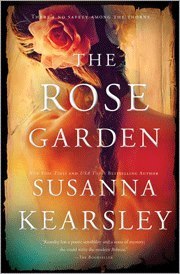
I’m a sucker for a good time-travel story, so much so that I started a time-travel discussion group on one of my online forums. I was surprised when one of my forum-mates recommended books by this author I had never heard of. I checked the blurbs on Amazon and had to admit, they sounded good. So I downloaded The Rose Garden to my Kindle and began reading right away.
The first thing I realized was that the problem I’d had with the last I-don’t-know-how-many-books was not me! The Rose Garden is extremely well-written and hits the ground running. I was immediately appreciative of the style and immediately caught up in the story. The characters are well-defined and the setting—an old stone mansion in Cornwall—is a superb locale for time-travel. Descriptions of the home and the surrounding countryside are vibrant and incorporate all the senses; I actually felt like I could smell the sea air, feel the salt spray on my skin. I began to wish I lived in a place that was so deeply steeped in hundreds—thousands—of years of history.
So the very first day of reading I was able to get through about 20% of it (you know Kindle—no page numbers, just percentages). I was loathe to put it down, but the rest of my life was calling. As I reluctantly turned my attention to my other tasks, I realized I was looking out through the semi-transparent veil of great-book-residue. This is very hard to describe, but anyone who has ever been in the grip of an excellent book will know the feeling. It’s like looking through a window and seeing the world beyond, yet also seeing in the glass the reflection of the room behind you. You see one overlaid on the other and you can focus your attention on one or the other as you wish. This was what I was doing, seeing the real world around me, yet the feeling of the book overlaid it all, softening it, giving it a dreamy quality. While attending to what I needed to, I was also wondering what the characters were going to do next, what the turn of the story would be when I got back to it. It was luscious agony imagining what might happen but being unable to continue the story.
After my second long sit with the book, I went outside for a much-needed exercise break. It felt very much like dragging myself up out of a delicious dream when I would much rather have scrunched down under the covers and given myself up to sleep again. My immersion in ancient gray Cornwall jangled with my view of cactus and palm trees reaching up into the fiercely blue Arizona sky, their palm fronds rattling softly in the sun-warmed breeze. My “real” world felt unnatural to me, as if the book were the truth and my view of Tucson were the make-believe. I could not wait to get back into the story.
While reading, I found the book impelled me in three different directions. First of all, of course, I wanted to finish the book as quickly (or as slowly, see below) as possible. Secondly, I wanted to record my impressions here while they were fresh, even as they were forming. Thirdly, I wanted to get back to my own current work in progress, as The Rose Garden inspired me to paint my own words with the same glowing brush. I needed three sets of hands, three brains and three sets of eyes!
Reading a great book is like sitting down to a succulent meal; it’s a struggle to balance the desire to gobble up everything as quickly as possible against the need to savor every bite, to make it last as long as humanly possible. Wanting to know what happens next goads me on to read faster; the delicate descriptions of dappled shadows in the woods and waves breaking on a rocky coast invite me to linger. This delicious tension is the true mark of a good story; it holds us, it embraces us and carries us effortlessly toward completion.
And the completion of the story leaves us with a glowing satisfaction, tinged with sadness at the leaving.
But the good news is, I can go back any time and visit again. Granted I’ll know the story, know the twists and turns of it, but I’ll also know the characters, and seeing them again will be like seeing treasured old friends. Here I've only just left and I’m already looking forward to that next visit.
The Rose Garden, by Susanna Kearsley, is about as perfect a book as I could want.
Published on March 21, 2013 02:00
March 19, 2013
Author Interview: Tammie Clarke Gibbs
Today we go behind the scenes with author Tammie Clarke Gibbs & hernew Time Travel Romance, Sworn to Secrecy.
Tammie Clarke Gibbs is the author of the #1 Kindle Best Selling Gothic/Time Travel Romance Island of Secrets which has been consistently on three of the Amazon Best Seller Lists for over eighteen consecutive months. She is the author of three novels and multiple non-fiction titles. Tammie resides with her husband, son, and a very spoiled Maltese in South Georgia. She loves to hear from her fans and can be reached at her website and via email.
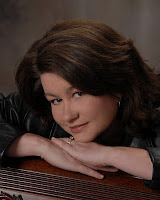
Where did the idea for the book come from? I have a very interesting family history book. It's not on my immediate family name, but on my great grandmother's side. It's a little red book with an interesting crest on it (a bloody palm). Both general ideas for both my first book ISLAND OF SECRETS and my newest book SWORN TO SECRECY came from this little book and the family, local folklore. Of course, I've embellished and added a romance to each of the stories.
Which character is your favorite, and why? This book has too many favorites, which is why I keep writing giving the supporting characters leading roles in future books.
Have your characters (in this book or any other) ever done anything that surprised you? Yes, they started rewriting the story. It's pretty spooky when you become the conduit for channeling fictional characters.
Time-travel stories are a pretty specialized, and well-loved, genre. What are your favorite time-travel books? Two of my favorite time travel romance authors are Jude Devearux and Lynn Kurland. I have all of their books.
What would you like readers to take away with them at the end of your book? That love can grow from adversity and has the power to conquer even when stuggling against all the odds.
What's next on the horizon for you? My next book will also be a paranormal but will be the first in a new series of books on lesser-known legends. Readers will love this book because it will be reminiscent of the love across century's theme in Island of Secrets. I've been plotting this book for a few years now, and it's almost ready to be written. Thank you for giving me the opportunity to visit with you on your blog.
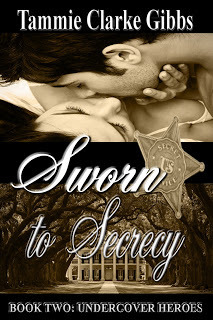
A little something from Tammie:
Be sure to visit all of the bloggers and authors that are hosting me during the Book Launch Celebration for Sworn to Secrecy for your chance to win prizes and read more about me and my books. I have something special planned with each of them.
During the launch, you can grab a copy for just $0.99. After March 20th, the price goes to its list price of $3.99.
An unlikely alliance...a love born from the ashes of adversity.... Dak Bartholomew is a US Secret Service agent. When he wakes up locked in a dark room it's just another day until he realizes that he's not alone.Elizabeth Porter would like nothing more than to plunge her knife through the stranger's heart for all the trouble he's caused.
Together they'll take an unexpected journey to a time and place they could never have imagined and discover a secret they'll be sworn to protect.
Don't miss Tammie's other novels--
ISLAND OF SECRETS : GOTHIC TIME TRAVEL ROMANCE
KEEPING SECRETS: HISTORICAL ROMANTIC SUSPENSE
Buy on AmazonBuy on Barnes and NobleHelp spread the word by visiting my blog and participating in the giveaway.http://www.tammieclarkegibbs.com
Like Tammie on Facebook
Follow Tammie on Twitter
Scroll down to read an excerpt
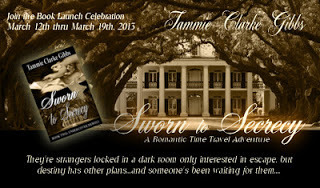
Click on the links below to visit participating Launch Partners & Read more…Author Barbara Ivie Green - Live on March 12, 2013
Author Bill Hiatt - Live on March 13, 2013
Author SJ Byrne - Live on March 13, 2013
Author Michelle Hughes - Live on March 14, 2013
Author Brian Bigelow - Live on March 15, 2013
Author Sheila Deeth - Live on March 16, 2013
Author Regan Black - Live on March 16, 2013
Author Pamela Foreman - Live on March 17, 2013
Author Olivia Martinez -Live on March 18, 2013 Wordlovers by Melissa Bowersock - Live on March 19, 2013
Author Andrea Buginsky - Live on March 19, 2013
Confessions of a Reader -Live on March 19, 2013
Author Gemma Wilford - Live on April 7, 2013
Click Here to go to the Giveaway Post and enter for some great prizes
Excerpt of Sworn to Secrecy Copyright Tammie Clarke Gibbs
Dak Bartholomew felt a trickle of blood run a cold wet trail down the side of his face from the open gash at his temple. He struggled to open his eyes, and after several moments succeeded. Focusing on his surroundings took several more, but eventually, he could see the small, dank-smelling room in more clarity than he even desired.The only light came from a single window, its panes blackened all but for one small section.He pulled himself off the filthy mattress and felt his way toward the light. The window had been painted from the inside, and it appeared that someone had literally scratched at it until a small stream of light was allowed in from the outside. Instinctively, he reached into his pocket for his knife, but it wasn't there. Nothing was there.There was a faint cry from the corner of the room. Startled, Dak stepped back into the darkness.He felt his way along the bed until he came to what he thought was a wall.The darkness was deep and black, and the light cut only a sliver through it, leaving the rest of the room engulfed in an ebony sea.He was weak from having been drugged or loss of blood. He wasn't sure which. Either would have given him an excuse to forget he wasn't alone and cower, but the pitiful whimpers stoked within him a steely determination."You there,"� he called and waited for an answer.The room was quiet in response. No whimpering. No breathing."Are you hurt?" Dak asked this time, and his voice was softer. Still there was no answer.He took several short steps, feeling his way along the wall in the direction he'd heard the sounds coming from."I won't hurt you,"� he said, this time louder. "I …"�Dak felt a dirty hand on his mouth and something sharp at his side.
Tammie Clarke Gibbs is the author of the #1 Kindle Best Selling Gothic/Time Travel Romance Island of Secrets which has been consistently on three of the Amazon Best Seller Lists for over eighteen consecutive months. She is the author of three novels and multiple non-fiction titles. Tammie resides with her husband, son, and a very spoiled Maltese in South Georgia. She loves to hear from her fans and can be reached at her website and via email.

Where did the idea for the book come from? I have a very interesting family history book. It's not on my immediate family name, but on my great grandmother's side. It's a little red book with an interesting crest on it (a bloody palm). Both general ideas for both my first book ISLAND OF SECRETS and my newest book SWORN TO SECRECY came from this little book and the family, local folklore. Of course, I've embellished and added a romance to each of the stories.
Which character is your favorite, and why? This book has too many favorites, which is why I keep writing giving the supporting characters leading roles in future books.
Have your characters (in this book or any other) ever done anything that surprised you? Yes, they started rewriting the story. It's pretty spooky when you become the conduit for channeling fictional characters.
Time-travel stories are a pretty specialized, and well-loved, genre. What are your favorite time-travel books? Two of my favorite time travel romance authors are Jude Devearux and Lynn Kurland. I have all of their books.
What would you like readers to take away with them at the end of your book? That love can grow from adversity and has the power to conquer even when stuggling against all the odds.
What's next on the horizon for you? My next book will also be a paranormal but will be the first in a new series of books on lesser-known legends. Readers will love this book because it will be reminiscent of the love across century's theme in Island of Secrets. I've been plotting this book for a few years now, and it's almost ready to be written. Thank you for giving me the opportunity to visit with you on your blog.

A little something from Tammie:
Be sure to visit all of the bloggers and authors that are hosting me during the Book Launch Celebration for Sworn to Secrecy for your chance to win prizes and read more about me and my books. I have something special planned with each of them.
During the launch, you can grab a copy for just $0.99. After March 20th, the price goes to its list price of $3.99.
An unlikely alliance...a love born from the ashes of adversity.... Dak Bartholomew is a US Secret Service agent. When he wakes up locked in a dark room it's just another day until he realizes that he's not alone.Elizabeth Porter would like nothing more than to plunge her knife through the stranger's heart for all the trouble he's caused.
Together they'll take an unexpected journey to a time and place they could never have imagined and discover a secret they'll be sworn to protect.
Don't miss Tammie's other novels--
ISLAND OF SECRETS : GOTHIC TIME TRAVEL ROMANCE
KEEPING SECRETS: HISTORICAL ROMANTIC SUSPENSE
Buy on AmazonBuy on Barnes and NobleHelp spread the word by visiting my blog and participating in the giveaway.http://www.tammieclarkegibbs.com
Like Tammie on Facebook
Follow Tammie on Twitter
Scroll down to read an excerpt

Click on the links below to visit participating Launch Partners & Read more…Author Barbara Ivie Green - Live on March 12, 2013
Author Bill Hiatt - Live on March 13, 2013
Author SJ Byrne - Live on March 13, 2013
Author Michelle Hughes - Live on March 14, 2013
Author Brian Bigelow - Live on March 15, 2013
Author Sheila Deeth - Live on March 16, 2013
Author Regan Black - Live on March 16, 2013
Author Pamela Foreman - Live on March 17, 2013
Author Olivia Martinez -Live on March 18, 2013 Wordlovers by Melissa Bowersock - Live on March 19, 2013
Author Andrea Buginsky - Live on March 19, 2013
Confessions of a Reader -Live on March 19, 2013
Author Gemma Wilford - Live on April 7, 2013
Click Here to go to the Giveaway Post and enter for some great prizes
Excerpt of Sworn to Secrecy Copyright Tammie Clarke Gibbs
Dak Bartholomew felt a trickle of blood run a cold wet trail down the side of his face from the open gash at his temple. He struggled to open his eyes, and after several moments succeeded. Focusing on his surroundings took several more, but eventually, he could see the small, dank-smelling room in more clarity than he even desired.The only light came from a single window, its panes blackened all but for one small section.He pulled himself off the filthy mattress and felt his way toward the light. The window had been painted from the inside, and it appeared that someone had literally scratched at it until a small stream of light was allowed in from the outside. Instinctively, he reached into his pocket for his knife, but it wasn't there. Nothing was there.There was a faint cry from the corner of the room. Startled, Dak stepped back into the darkness.He felt his way along the bed until he came to what he thought was a wall.The darkness was deep and black, and the light cut only a sliver through it, leaving the rest of the room engulfed in an ebony sea.He was weak from having been drugged or loss of blood. He wasn't sure which. Either would have given him an excuse to forget he wasn't alone and cower, but the pitiful whimpers stoked within him a steely determination."You there,"� he called and waited for an answer.The room was quiet in response. No whimpering. No breathing."Are you hurt?" Dak asked this time, and his voice was softer. Still there was no answer.He took several short steps, feeling his way along the wall in the direction he'd heard the sounds coming from."I won't hurt you,"� he said, this time louder. "I …"�Dak felt a dirty hand on his mouth and something sharp at his side.
Published on March 19, 2013 04:00
March 16, 2013
Guest Author: Lorrie Struiff
Today I have a post from guest author Lorrie Struiff. Welcome, Lorrie; what have you got for us?
Hi Melissa,Thank you so much for hosting me today on your blog.I’d like to let the readers and authors read what happened to Fat Phil Phillips the day he couldn't resist an interview.
~~~~~~~
“This is Newsy Persons at BTGN with all your oldies but goodies coming at you. Oh jeez, wait a minute, folks. I see the co-star of the Call on the Dead series, Phil Phillips, outside the window. Maybe he’ll give us an interview.” Newsy waves him in. “Great. He’s coming in folks, sit tight.”
The door opens. Phil peeks around the door. “Uh, are you waving at me?”
“Yes, yes, come on in, have a seat. You’re Phil Phillips, right? Of the new CODseries?"
“Yeah. Who’re you?”
Newsy settles back in his chair. “I’m Newsy Persons. You never heard of me?”
“Nope. ’Fraid not.”
“Well, I’m so fascinated with your co-star role in the previews of the upcoming series, would you mind if I ask you a few questions?”
“Me?” Phil smiles wide and his chest puffs. “Really? Me?” He glances around the studio. The chair squeaks when he sits. “Sure, I don’t mind. I have some time.”
“Tell us a little about the star of the series.”
“Well, I’m the pres--”
“No, no, I mean Winnie Krapski.”
Phil shoots Newsy an angry look. “I thought you wanted to know about me.”
“Well, ahem, of course I do, Phil. Tell me what you do in the series.”
“I’m the president of our chapter in the world-wide organization of the COD club.” Phil slicks back the thinning hair on top of his head. “I recruit members who get the gift, assign them districts, and make sure they’re doing their jobs right.”
“What gift?”
Phil shakes his head. “I can’t tell you, it’s a secret.”
“Can’t tell me? We’re going to find out soon enough. Come on, you can tell me."
“Nope, Sorry, it’s a secret. I can’t tell you.”
"You’re a stubborn man, Phil. With a club named Call on the Dead, there has to be a big story behind it."
“Sorry, can’t tell you that either.”
Newsy sighs. “Well then, tell us a little bit about Winnie?”
“I can’t tell you, but I will say this. She is one bossy woman. When I go with her to a job, she has an evil knack of getting me into more trouble than I ever imagined. She always jumps before she thinks. Bam! Right into the thick of things. I've been shot at, gotten punched, froze my behind off and had to bail her out of jail. All because she can’t keep her big yap shut.”
Newsy leans forward. “You dislike her that much?”
“Naw, don’t get me wrong, she’s okay. In fact, we’re good friends. I just wish she was smarter, not so ditzy, and would stay out of trouble."
“You mean she’s whacky?”
“I can’t tell you that. You’ll have to indulge in the series to find out.”
“All we've learned is that you’re president, Winnie is whacky, bossy, stupid, and can’t stay out of threatening situations that she drags you into."
“You got it.”
“You’re not giving our listeners much to grab onto here.”
Phil scratches his head and gives Newsy a puzzled look. “What do you mean listeners?” Phil’s eyebrows lift and his eyes go wide. “You mean we’re live? On the air?”
Newsy eyes the microphone between them on the table. He gives Phil a slow grin. “I can’t tell you that.”
***
Don’t worry, readers. You can find out for yourselves. The COD ( Call on the Dead Club ) is out now. Stories 1 & 2 are in the first volume and the newly released COD 3 is out now. At only 99 cents per download, don’t pass up the chance to get your two.
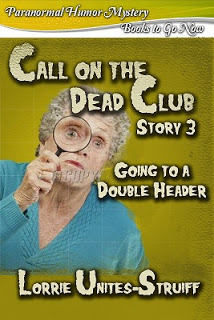
Mr. and Mrs. Bickerson are in a fatal highway accident. Both Phil and Winnie work their last requests. Strange that the dead couple want their requests kept secret from one another. Why? What are they hiding?
Winnie works the request and ends up in more danger than she can handle. Yep, Winnie is in deep poo again. Find out more here.
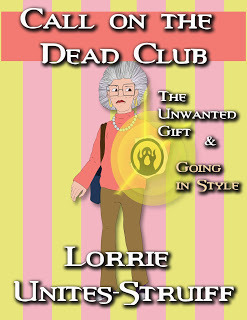
Winnie went to the funeral home to pay her last respects to her dead bingo friend Cora. There Cora lay in her casket, and there Cora sat on a chair near her casket. Winnie fainted.
***
Come and meet Winnie Krapski who hugged a cherry tree during a lightning storm. The bolt slammed her, splitting the tree in half. The near-death experience bestowed her with a gift–-one she’d rather not have.
Drafted into the C.O.D. Club (Call on the Dead) by Fat Phil Phillips, her mission is to grant the newly deceased’s ghost one last reasonable request. Can Winnie honor her oath?
Well, she tries. But, not before she stumbles into situations that almost get her killed. She’s one spunky broad. Follow her adventures here.
Thank you for reading. If you have time, please leave a comment. I love comments.
Other sites where you can find me. Have a peek.
Amazon, my download buy page: http://www.amazon.com/Lorrie-Unites-Struiff/e/B0046DA65Q/ref=sr_tc_2_0?qid=1357417814&sr=1-2-ent
Blog: http://lorriejuly.blogspot.com/
Facebook:https://www.facebook.com/home.php#!/lorrie.struiff
Pintrest: https://pinterest.com/811lms/
Published on March 16, 2013 07:37
March 13, 2013
Author Interview - Micheal Brookes
Today I am happy to interview Michael Brookes, who is making a blog tour to promote his new book.
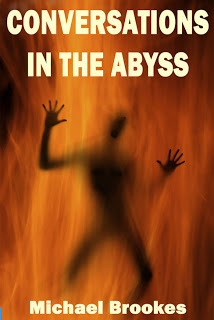
Michael, you’re releasing your latest book, Conversations in the Abyss. Please give us a brief overview of the book and how it relates to your last book, The Cult of Me.
In The Cult of Me we met a man who grew up with the ability to enter people’s minds and bend them to his will. His ability makes him useful to certain factions and he helps a secret church organization kill Lazarus, an immortal attempting to bring about the apocalypse.
He steals Lazarus’s miracle, gaining immortality, but only to discover that the miracle has a harsh price. An eternal fire burns within his flesh. For his crime he is imprisoned within the walls of a monastery. Seeking escape he delves deep inside his own psyche and hides at the border between life and death. There he discovers some of the secrets of the universe.
He also learns that the apocalypse is coming and once again he must stop it.
Your story spans 2 books so far and is poised to have a third. What was your process during the planning? Did you know the story was going to span multiple books, or did you write the first one and then realize you wanted to continue the story?
I knew that the story would span a trilogy, but only a rough idea of what would occur in each book. I conduct an extensive planning process before writing each book. The next one is going to be the trickiest. I have an idea of where it should end, but it might be a bit obvious so I’ll need to think of something different.
Writing about the Apocalyptic destruction of the entire universe seems like a daunting task. What was the inspiration behind your story?
The story is inspired by ‘Paradise Lost.’ For me, John Milton’s book is the greatest story ever told and there are aspects that interest me and made me think of writing a story based on the same events, but with a modern twist.
Your story concerns the classic battle between good and evil, between the forces of God and the forces of Satan. What influence, if any, did your religious background have on your writing?
In the book good and evil isn't quite as clear cut as it first seems. I've always had an interest in theology and religion in general.
Your stories tend to have a dark side to them. What authors and books have had the most influence on your writing?
For horror I think Clive Barker is probably my biggest influence, along with other classic authors like James Herbert. I also read a lot of science fiction, in fact Ian M. Banks is the author of my favourite novel - Excession .
How would you define “success” for a writer?
For me hearing people reading my books and enjoying them.
What would you like readers to take away with them after reading your books?
I like to think that my stories encourage questions as well as provide entertainment.
You work as a producer for a game development company. Are the creative processes for gaming and writing similar or different? Do you find the two formats complement each other in any way?
There are similarities between the two. It depends greatly on the game, for the latest game we’re working on, Elite: Dangerous, the game is more about the setting than a linear narrative.
What other projects can we expect to see from you in the future, or are already out there?
I have a first draft that I need to work up. I've also been asked to write the official novel for our new game.
Is there anything you’d like to add?
I’d like to thank you for hosting this interview and taking part in the blog tour. I’d also like to thank my readers and I hope you continue to find my work worth reading.
How can readers connect with you?
Blog: http://thecultofme.blogspot.co.uk/Amazon Author Page: http://www.amazon.com/Michael-Brookes/e/B008OGD8KG/Twitter page: http://www.twitter.com/TheCultofMe
Published on March 13, 2013 06:10
March 4, 2013
2013 TFOB
The TFOB is coming! The TFOB is coming!
The what? What the heck’s a TFOB? (And no, it’s not that thing on your pocket watch. Oh, you don’t have a pocket watch?)
No matter. The TFOB is ….
the Tucson Festival of Books !
This is the eagerly awaited and most exceptional book festival in all of Southern Arizona. In its second year, the TFOB became the third largest book festival in the country with over 100,000 attendees. In this, its fifth year, there is just no telling how many folks there might be, but it’s a celebration of books and reading the likes of which you have never seen.
And no wonder. With over 275 exhibitors and 450 authors, it’s a bibliophile’s paradise. There are workshops, panels, discussions, presentations and literary activities for the entire family. Some of the many well-known and featured authors this year are Pulitzer-prize winner David Wood, “Pearls Before Swine” cartoonist Stephan Pastis, John Sayles, and R. L. Stine. In addition to the recognizable names, there are hundreds of lesser-known but just as hard-working authors that are available to meet with folks for a friendly chat. I believe I can speak for most of them when I say that meeting our readers and talking with them face-to-face is extremely gratifying and great fun.
So when does all this happen? March 9-10, 2013 at the University of Arizona Mall in the center of town. Events start as early as 9:30am and go until 5:30pm both days. There is food, music, lots of free stuff and fun for all. If you’re in the neighborhood, I hope you’ll come on down. If you do, stop by the Author’s Pavilion West and say hello. I’ll be there from 9:45-11:45am on Saturday morning.
See you there!

Published on March 04, 2013 05:00
February 20, 2013
Author Interview - Sandra Farris
Today I interview Sandra Farris, a prolific writer of a variety of genres.
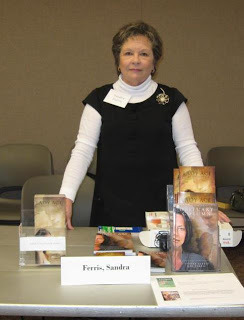
You’ve got quite a few books to your credit. Please tell us the titles and give a brief overview of the plots.
Can You hear the Music? . . . After suffering abuse at the hands of her aunt, Corey James runs away, dressed as a boy. She meets a hobo who helps restore her self-esteem as they ride the rails together. Their adventures along the way are both perilous and heartwarming.
Lady Ace . . . Kasey O’Brien takes over their failing air charter business after her father’s deadly accident. She is determined to make it work, but is faced with sabotage, suspicious accidents and attempted murder. Who was behind these crimes, and what was the motive?
Obituary Column . . . Tracy Chapman tracks down missing family members of the deceased to inform them of their relative's whereabouts. Mystery and murder surround her latest case, a ninety-six year old Jewish gentleman, Samuel Levine. What secrets did Samuel keep that led to murder and kidnapping?
Wind Dancers . . . A collection of short stories and poems for the reader on the go.
Hobo. . . Playmates were scarce for ten-year old Joby Richards, so when a feral dog, Hobo, shows up, Joby is determined to make friends. But the arrival of a mysterious stranger puts both the boy and dog at great risk. Did Hobo immediately sense the dark secret the stranger harbored?
Memory of a Murder . . . Bailey Collins regained consciousness in the passenger seat of her wrecked car. Her first concern was for her husband, but it was a stranger behind the wheel with a bullet hole in his head. A gun lay between them.
Who was this man? Where were they and how did they get there? Did she kill the stranger? If so, why? Bailey couldn't remember. She knew her name and where she lived, so why couldn't she answer any of these questions?
In Search of Alan Hawk . . . Samantha Edwards’ assignment is to find a movie star, Alan Hawk, once known as “the sexiest man alive” for the successful magazine series, “Whatever became of . . .?” Samantha was never a fan of the actor and asked, unsuccessfully, to be reassigned.
Her search takes her to three continents and through treacherous terrain. Would she finally find him in South America?
Ten years had passed since Alan Hawk dropped out of Hollywood, would she even recognize him? Samantha certainly wasn’t prepared for what she found.
Do you have a favorite (or favorites)? If so, why?
Can You Hear the Music? is my favorite. It was the first book I ever wrote and I lived with the characters for years, as there were many interruptions in my writing career. Raising three sons took priority.
My lack of self-esteem came from being told “I couldn’t,” “you don’t have any friends,” etc., in my young adult days. So Corey inherited those feelings, which gave me the opportunity to speak out against condemning others or bullying, but not being preachy about it. I wanted my readers to learn to respect others, no matter their placement on the society ladder, or what they looked like. Who better to teach that than a hobo?
Then, too, I fell in love with my characters. Is that being vain?I was happy when I finally finished their story, but sad saying good-bye to old friends.
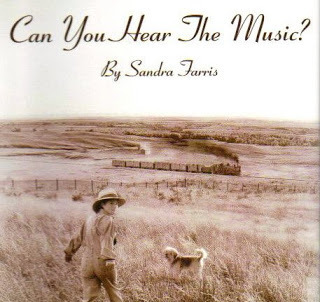
Can You Hear the Music? is both highly dramatic and heart-tugging. What was the inspiration behind the story?
One inspiration came from a visit to an orphanage in Dallas, Texas, which was one of my high school Home Making projects. It was Christmastime and my class drew names of the young residents. I was so touched when I saw those young children come down the stairs to meet us that I never forgot that experience, or my little friend Kenneth Bell.
As an adult, a little girl I met who had been orphaned the same way as Corey, lived with abusive relatives next door to me was another inspiration. The abuse was not so much physical, that I could see, but more mental. I learned the details in talking to the baby sitter. This little girl was more the model for Corey. Of course my imagination kicked in, prompted by both the orphanage visit and the girl next door, when I began writing this book.
The children I met along the way did not suffer the abuse Corey did, but I had to make it worse so it would be more reasonable for her to run away, and for the reader to be pulling for her successful escape.
You made a wonderful mini-movie of Can You Hear the Music? for a book trailer. What was that experience like, translating your book to the screen?
First, thank you for the compliment.
To borrow an overused phrase, it was awesome! Seeing the characters come to life was very moving. The actors did such a great job that I believed they were Corey and Andy.
The process of auditioning actors was thrilling, seeing their interpretation of the character. There are some good actors in Tucson. One amusing incident—if you could call it amusing—happened when one of the actors showed up slightly inebriated, his shirt buttoned wrong and his hair in disarray. He said that someone mentioned one of the characters was a hobo, so he came in that spirit. Thing is, he was a good actor even in that condition. We couldn’t take a chance with him, though.
Also, scouting locations with my son, preparing craft services, being a gofer, etc., was very exciting. My son, of course, did a fantastic job with the script, directing, filming, editing and special effects.
The video earned the “Best Book Video” award for March 2012 on “Books In Sync.” The wonderful thing about that is, there were eight videos, including mine, and people voted on it—people that didn’t even know me. How special is that?
I invite your readers to see how great it turned out by watching it on YouTube: http://www.youtube.com/watch?v=cMzcqsMzF5E&feature=plcp While there, please watch the short special effects video, also.
You sold the movie rights to your mystery novel The Obituary Column. How did that come about, and what’s the status of the movie project now?
My ex-husband came to me with the idea for this book and asked me to write it, which I did. He had contacts in Hollywood (an Independent film company president and CEO) and sent them the manuscript.
We had a meeting out there with a scriptwriter, who wanted the project. We discussed the book and some of his ideas. Although a good part followed the book, the script wasn’t to my liking, because it strayed from the original concept of the story. They changed the title a couple of times and ended up with The Treasure Within . Don’t understand their thinking on that.
The movie stars Robert Loggia, Sam Hennings, and Melissa McGinnis. The trailer can be seen at this link: http://www.youtube.com/watch?v=G_thdt12ik8
I don’t know the status of the movie, I can’t get an answer to my e-mails, although in the beginning they were very forthcoming. Early on, they sent me the poster and were all excited for me to see the movie once it was done.
In your opinion, what makes a good, strong mystery?
Being unable to guess the outcome until the end, then saying, “Dang, I should have seen that from clues early on.” Also it should keep you in its grasp, making you unable to put it down until you finish the book.
One of my readers said of Obituary Column , “it was one of those books I enjoy so much that I find myself wondering what the characters are doing when I’m not reading it.” That’s one of the highest compliments a writer can get, at least in my opinion.
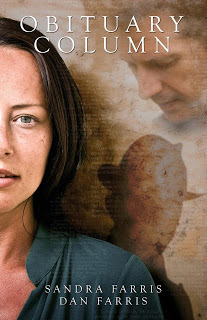
What do you love the most about writing; what do you like the least?
What I like most is creating the characters, their world, and how they function in it with all that happens to them. I like getting totally immersed in the story and characters then seeing it all come together.
What I like the least is writing a synopsis and query letter. Promoting my books is another least liked, but a must to sell books and myself. It is hard work and my understanding of the process is in the infancy stage, which makes it that much harder.
Another is sitting in front of a blank computer screen and nothing comes. Sometimes I will write a fan letter jut to get the creative juices flowing. But the trick is to keep your rear end in the seat and write, even if you delete it later.
What do you hope readers will take away from your books?
I hope the readers will have such an enjoyable read they will think about the characters and story long after they finish the book, or like I mentioned above, they “will wonder what the characters are doing when they (the readers) aren’t reading.”
What’s next on the horizon?
I like to try different genres. Years ago I wrote a couple of children’s plays, one of which was performed at the apartment complex’s community center where I worked. Right now I have a short story titled Vernon House, about a ghost and a Victorian house, ready to publish. I’m just waiting for my book cover to be finished.
I am also working on two novels. One is the sequel to Can You Hear the Music? and the other is an original. Don’t have titles for these. Sometimes I will be finished with the book before I come up with a title.
The sequel to Can You hear the Music? is not progressing very quickly. Basically it is because I didn’t plan on doing a sequel and it’s hard to be creative with a project you said goodbye to a long time ago. When fans of the book kept asking for one, I told them if I didn’t like the way it was going, I wouldn’t write the sequel. I may be at that point, but I decided to put it aside for now and work on the original novel.
How can readers connect with you?
Website: http://www.sandrafarris.com/sandrafarris.comFacebook: https://www.facebook.com/writersanFace Book Author pages: https://www.facebook.com/authorsandrafarris https://www.facebook.com/pages/Can-You-Hear-The-Music/456396787733038Goodreads: http://www.goodreads.com/author/show/54177.Sandra_FarrisLinkedin: http://www.linkedin.com/pub/sandy-farris/18/340/2a2Google Plus: https://plus.google.com/117773947789666704595/posts
Also the link to my Amazon page: www.amazon.com/Sandra-Farris/e/B005ZRBMLEwhere my books can be previewed and purchased.
Published on February 20, 2013 12:57

